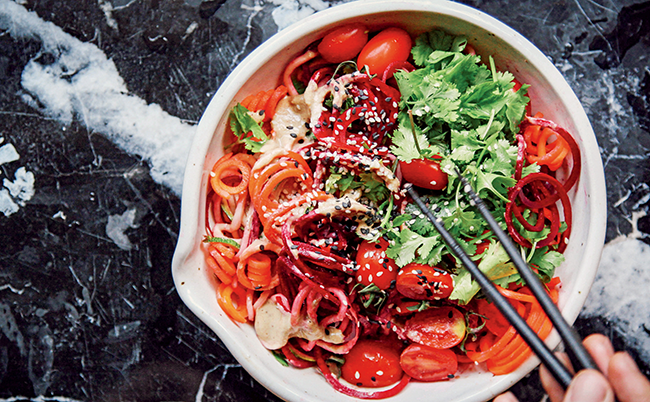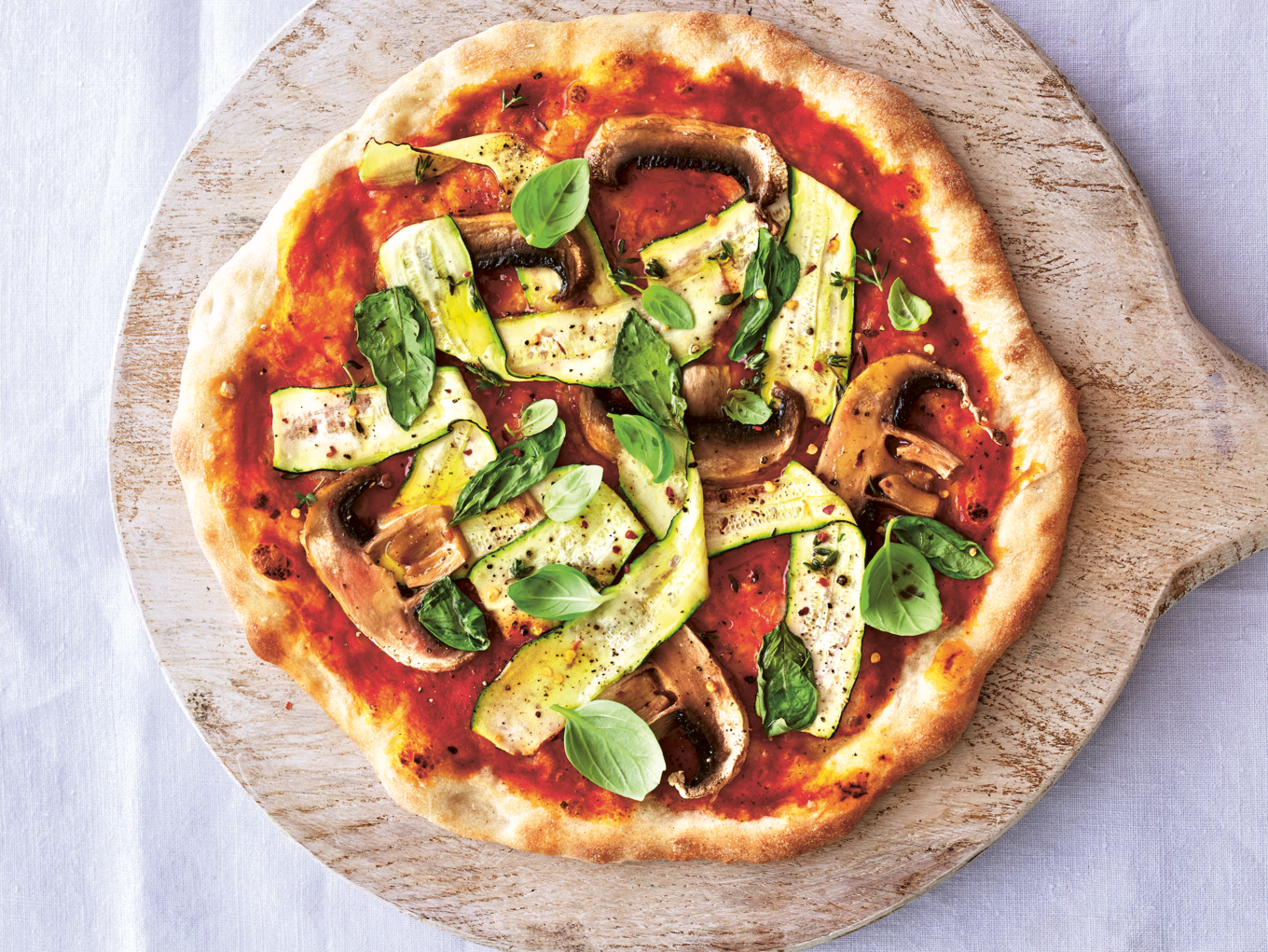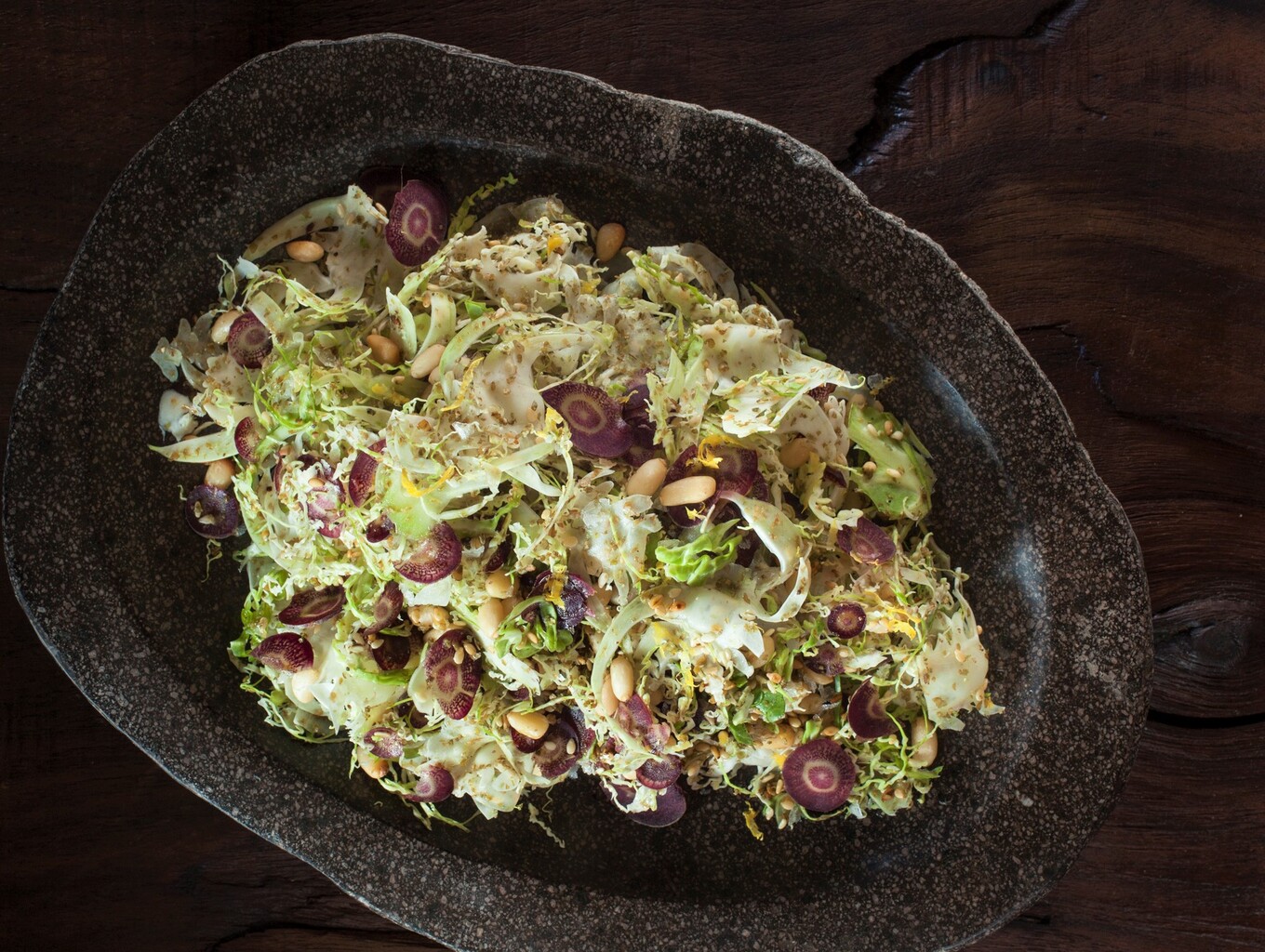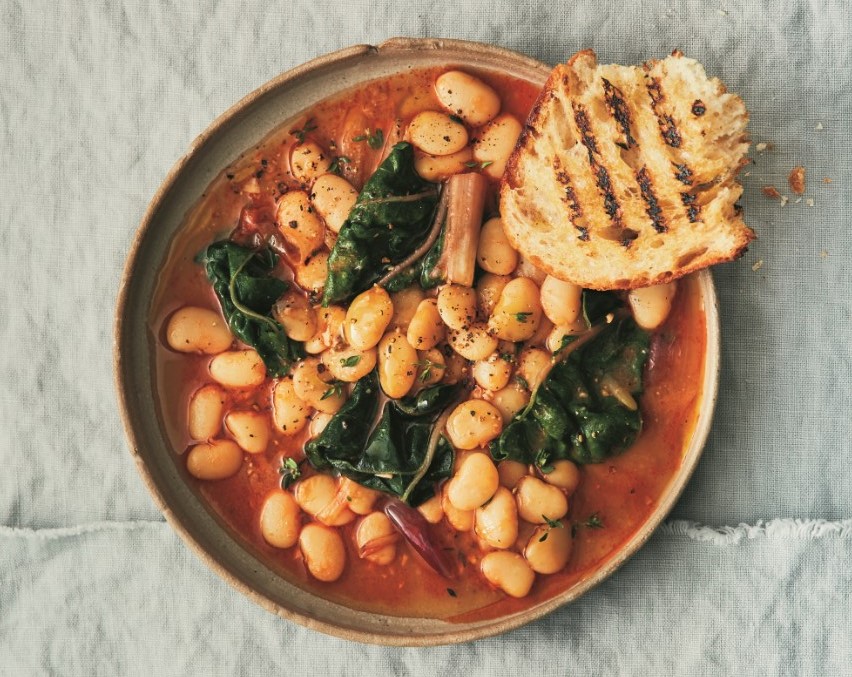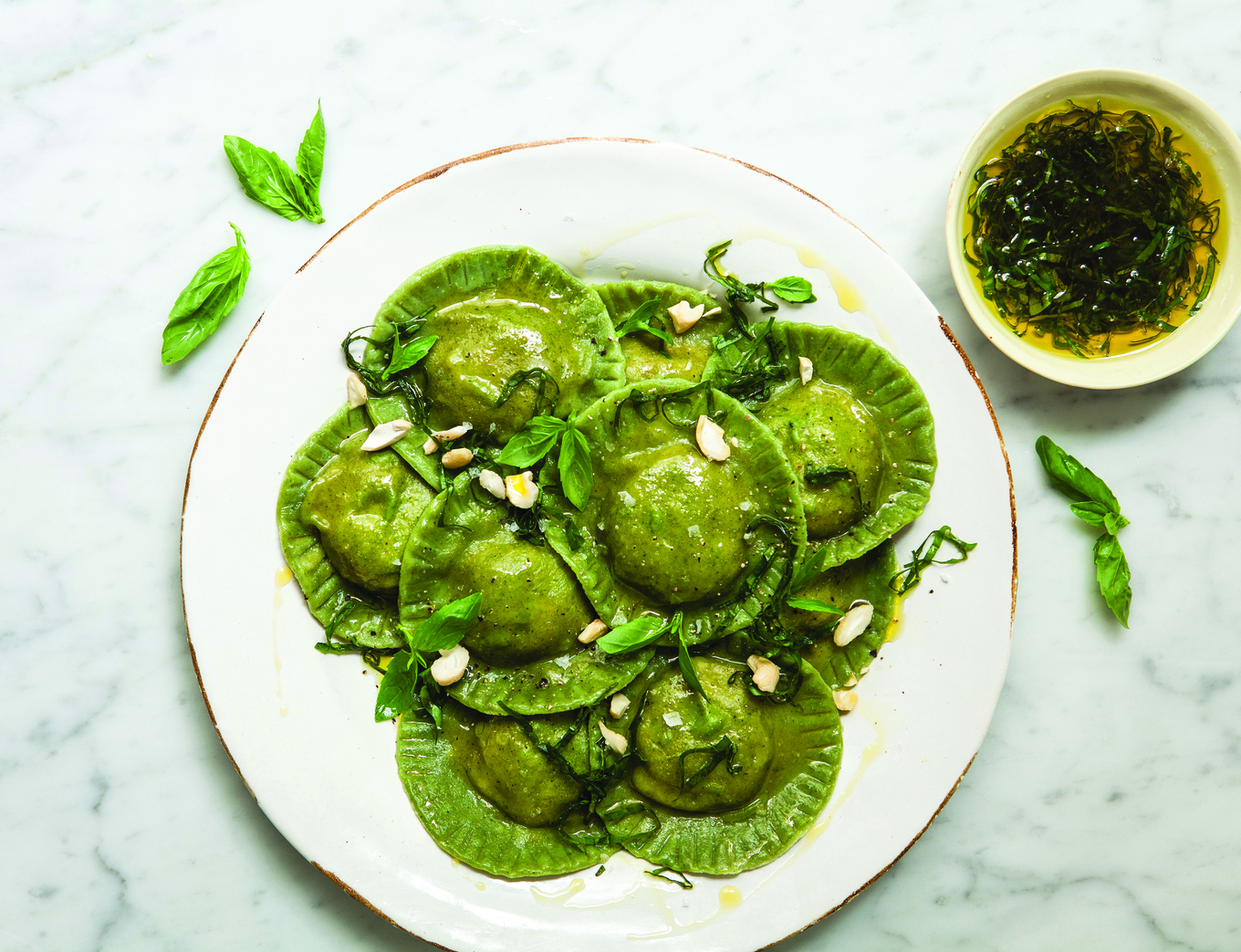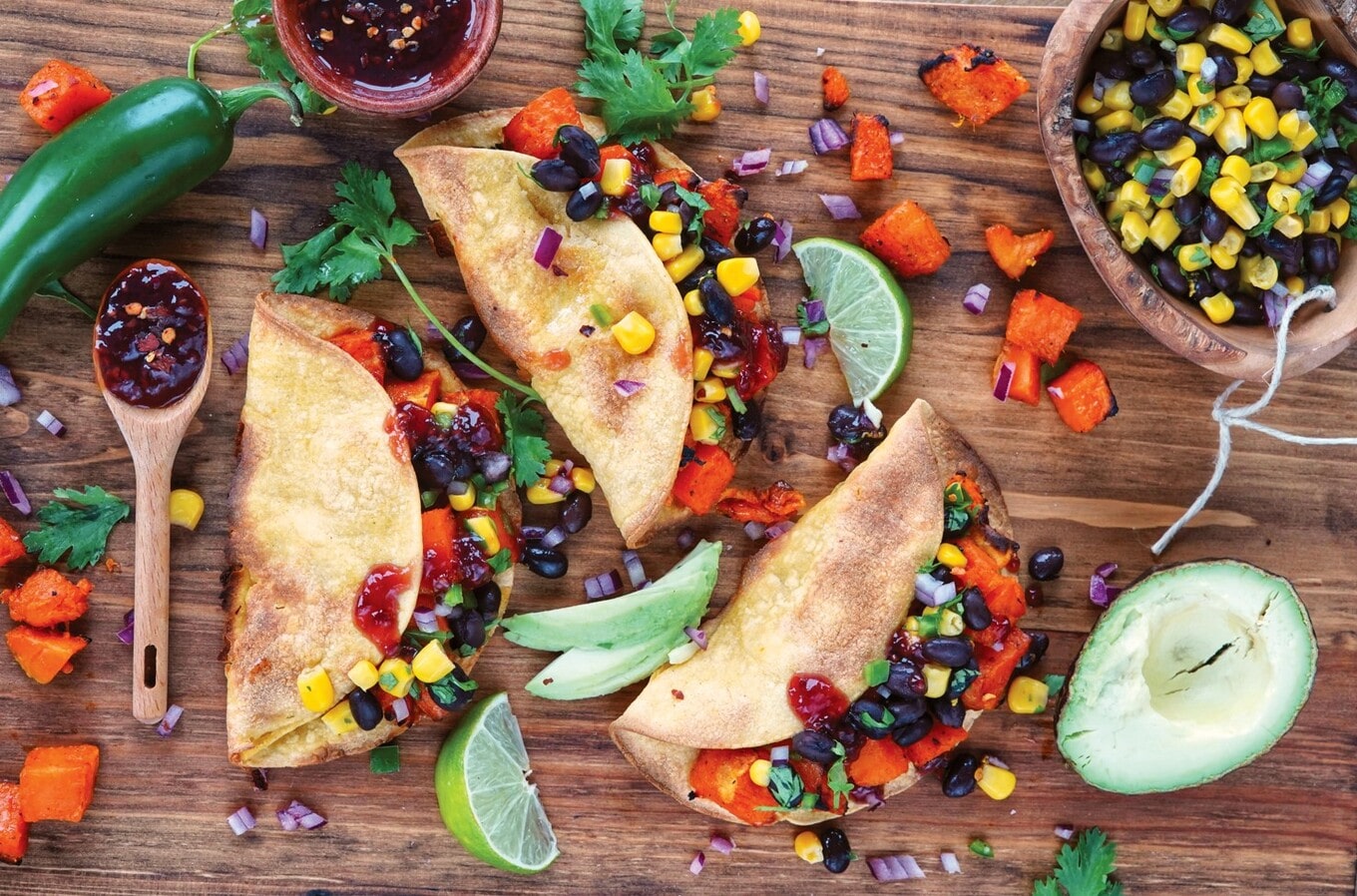Gut health is important. Over the last few years, studies have revealed that the microbes in our gastrointestinal tract may be able to influence our overall health in a big way. For one, they help to break down food and provide us with important nutrients. But when gut bacteria is well-balanced and healthy, it may also help to support our immune system and even reduce the risk of chronic diseases, like heart disease (the leading cause of death around the world).
One of the best ways to influence our gut health is through the foods we eat, and that’s why some experts have come up with new nutritional advice: aim to eat 30 points worth of whole foods every week. Stay with us. It can be frustrating to hear new nutritional advice all of the time, but following the plant points concept could make a significant difference to how you feel—here’s what you need to know.
What are plant points? And why do you need 30 per week?
For years, we’ve been told that eating five portions of fruit and vegetables a day is important for our health—and it certainly is. But the new guidance based around plant points expands on this advice, bringing into consideration how we can best support our guts, too.
The plant point guidance is based on research by the American Gut Project, which involved more than 10,000 participants. The findings were simple: individuals who scored 30 plant points or more per week had the most diverse gut microbiomes because the foods they were eating were feeding more beneficial bacteria in their bodies.
To get one plant point, you must eat one type of plant-based, whole food. It can be any type of vegetable, whole grain, fruit, legume, nuts, seeds, tofu, tempeh, and even dark chocolate (over 70-percent cocoa), for example. Herbs, spices, olive oil, and black pepper also count towards your 30-point target per week, but most experts consider these to be worth around a quarter of a point each. Others, however, like the gut health program Zoe, don’t specify exactly how many points herbs or spices are worth but do recommend you eat them a few times throughout the week to get all the benefits they offer.
 Pexels
Pexels
Plus, to make things even easier, different colored vegetables or fruits all count as one plant point. So if, for example, you cooked a stir fry with yellow, red, and orange peppers, you’d get one plant point for each.
“This is due to the different chemicals found in different colored plants,” Catherine Rabess, RD, told the BBC. “The function of the polyphenols (a particular group of compounds) can vary greatly depending on the color and type of a food.”
The importance of gut health
Research suggests that eating plant-based whole foods supports “good” bacteria to keep “bad” bacteria under control. Take Bifidobacteria, for example. This beneficial bacteria helps to aid in digestion, promotes regular bowel movements, and supports the immune system, and it also helps to create an environment in the gut that is less hospitable to pathogenic bacteria.
Examples of pathogenic bacteria include E.coli (which can cause gastrointestinal infections) and Helicobacter pylori (which is linked with stomach ulcers and even stomach cancer). However prebiotic foods such as bananas, onions, garlic, leeks, asparagus, and whole grains provide nutrients that help to support the growth and activity of Bifidobacteria, helping to reduce the amount of pathogenic bacteria in the gut.
Poor gut health can also lead to chronic inflammation, which is a risk factor for chronic disease. Polyphenols, however, can help. “Best described as the bodyguards of the gut, polyphenols have antioxidative, anti-inflammatory, and antimicrobial activities, which can improve our health,” adds Rabess. “They can defend against harmful invaders as well as reduce inflammation and oxidative damage that can be linked to chronic disease.”
Vegan recipes to help you get your 30 plant points each week
Feeling inspired to start getting your 30 plant points a week? The good news is, it’s easier than ever, and it doesn’t mean sacrificing delicious foods. For proof of that, find some of our favorite whole-food recipes below, along with plant point estimates (these aren’t exact, as the consensus around what counts as a plant point can vary, but they will help you get a general idea of what each recipe offers). And for more where they came from, you can find our extensive vegan recipe database here.
1 Raw Vegan Veggie Noodle Bowl With Ginger-Tamarind Sauce
What is it? Fresh raw vegetable noodles, made with beets, zucchini, and carrots, in a fragrant, aromatic sauce.
Plant point count: Around 6
Get the recipe
2 Vegan Mushroom and Truffled Zucchini Pizza
What is it? Delicious pizza topped with portobello mushrooms, sliced zucchini, chili flakes, and truffle oil.
Plant point count: Around 3½
Get the recipe
3 Vegan Shaved Brussels Sprouts With Za’atar, Lemon, and Pine Nuts
What is it? Brussels sprouts which have been tossed with lemon, za’atar seasoning, and pine nuts. It’s a delicious, hearty, zesty, and unique salad recipe.
Plant point count: Around 3
Get the recipe
4 Vegan Shortcut Brothy Beans
What is it? Canned beans are upgraded with the help of shallots, garlic, herbs, tomato paste, and miso.
Plant point count: Around 5
Get the recipe
5 Creamy Vegan Spinach Ravioli With Cashew Cheese Filling
What is it? Simple yet delicious pasta stuffed with creamy, herby, homemade cashew cheese.
Plant point count: Around 2 ½
Get the recipe
6 Smoky Vegan Sweet Potato Tacos
What is it? Simple, healthy tacos loaded with nourishing sweet potato, spices, and black bean salsa.
Plant point count: Around 4
Get the recipe
7 Saucy Vegan Pad Thai With Crisp Pan-Fried Tofu
What is it? Sweet and savory Thai noodles, loaded with bean sprouts, peanuts, red pepper flakes, and crispy tofu.
Plant point count: Around 5
Get the recipe
8 Simple Crispy Vegan Smashed Potatoes
What is it? Simple, crispy smashed potatoes. The perfect comfort dish.
Plant point count: Around 1 ½
Get the recipe
For more on health, read:
JUMP TO ... Latest News | Recipes | Guides | Health | Subscribe


